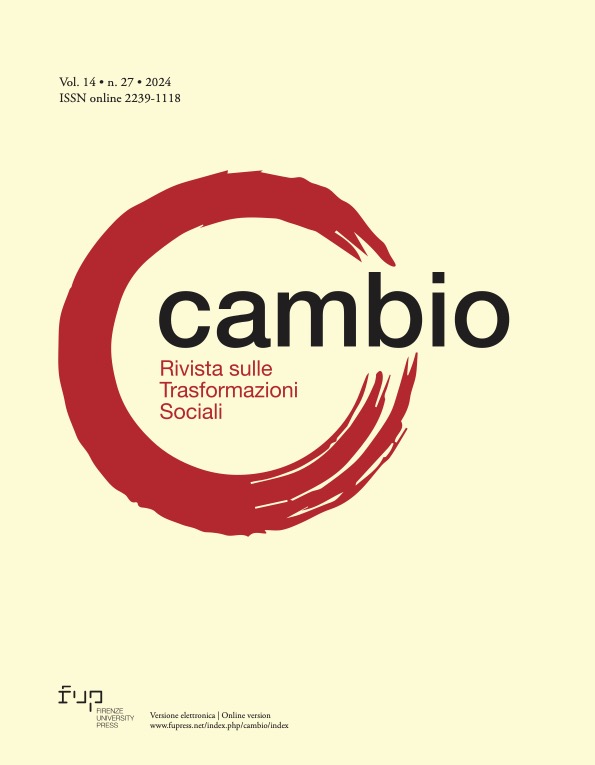Published 2024-12-09
Keywords
- academics,
- Italian university,
- artificial intelligence,
- ChatGPT,
- work practices
- imaginaries ...More
How to Cite
Copyright (c) 2024 Francesca Setiffi, Giovanni Ciofalo, Marco Pedroni

This work is licensed under a Creative Commons Attribution 4.0 International License.
Abstract
The article aims to analyze the results of an exploratory research study conducted in 2023 with Italian academics (N = 64) regarding their work practices and imaginaries related to artificial intelligence, focusing on ChatGPT. The questionnaire and the interpretation of the results consider two perspectives: a) the culture and everyday life of artificial intelligence and 2) artificial communication, algorithmic thinking, platforms, and work practices. Based on the discourse analysis of the responses to open-ended questions collected through a self-administered online questionnaire and the adoption of the media ecology perspective, the interpretation of the results suggests the existence of two frameworks: use/knowledge and perceptions/expectations. These frameworks are based on the respondents’ ambivalence, and they represent the complex gray zone of the working practices and imaginaries of academics using ChatGPT. The article proposes adopting the concept of “adaptive equilibrium to artificial intelligence” to better understand the ongoing interaction and communication between academics and artificial intelligence. Finally, the article attempts to shed new light on the ongoing transformation of the university workplace through the lens of academics’ imaginaries and work practices in an era lacking the academic regulation of this so-called intelligent machine.

